Is Your Kanopy Covered?
The answer is probably yes.
Kanopy is an online database that contains tens of thousands of thoughtfully curated films that is available via public libraries all across the country. Check if your local library offers access to Kanopy, and then you can create an account for free — all you need is a library card! If you don’t have a library card, go get one!
Once you’ve set up an account, you might notice that you have a specified number of “credits” allotted for each month. For example, my local library offers 6 credits every month. Credits are replenished at the beginning of each month. Unused credits do not roll over, so make the most out of your allotment.
There is a wealth of content you will discover on Kanopy, but here are ten personal recommendations to get you started.
Note: As the title of this publication suggests, some recommendations appeal to “acquired tastes.” I will specify which films I consider “provocative” or “extreme” but, as always, exercise your viewer discretion.
Do you know anyone else who might want to know about great films streaming on Kanopy? If so remember, sharing is caring.
It will also help expand Acquired Taste’s readership, which I would greatly appreciate.
10 Fantastic Films on Kanopy
20th Century Women (Mike Mills, 2016).
As I mentioned in a previous piece about movie trailers, 20th Century Women is my favorite movie. I will not stop recommending it until you see it. Take a trip to Santa Barbara circa 1979 and stay awhile in the home of Dorothea Fields (Annette Bening), a single mother raising a teenage son, Jamie (Lucas Jade Zimmerman). She enlists the help of her cohabitant, Abbie (Greta Gerwig), and her son’s best friend, Julie (Elle Fanning), to help raise Jamie. Dorothea asks them, “How do you be a good man? What does that even mean nowadays?” It’s a good question at the heart of a great film.
Columbus (Kogonada, 2017)
Columbus is another all-time favorite film. As the directorial debut of South Korean filmmaker Kogonada, whose work I’ve written about previously, Columbus is as visually stunning as it is contemplative. Viewers that demand fast-paced action will be underwhelmed by this stunning cinematic masterwork. Nevertheless, I recommend this film to everybody.

Columbus is not rated by the MPAA but it is a very restrained film. I’d say it deserves a PG-13 due to language, smoking, and brief drug references. Greener Grass (Jocelyn DeBoer and Dawn Luebbe, 2019)
Greener Grass is the first film I wrote about in Acquired Tastes. As absurdly funny as it is unrelentingly odd, Greener Grass is… esoteric, certainly an “acquired taste” but not too extreme for casual viewers.
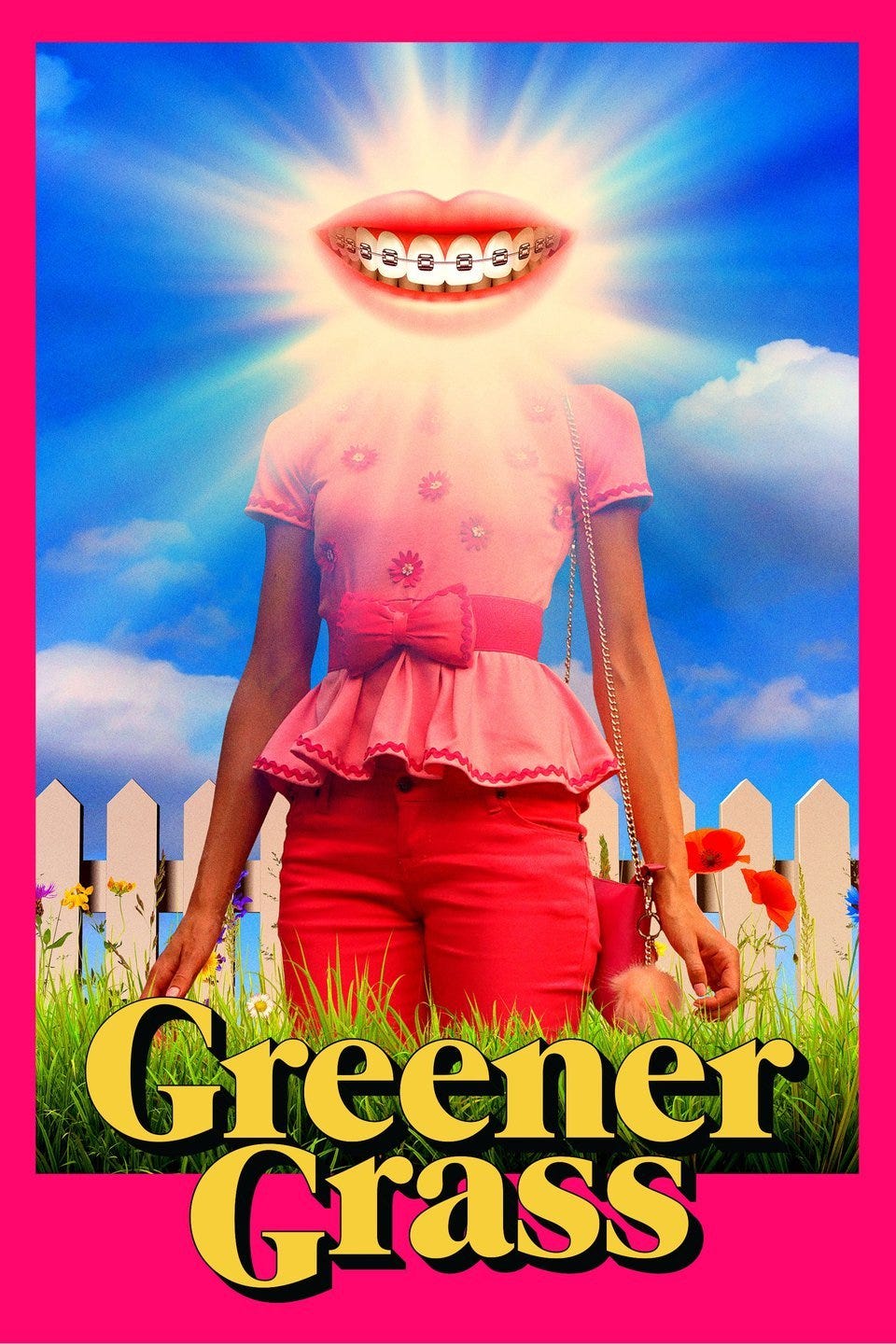
Greener Grass is not rated by the MPAA but would likely land a PG-13 for language and bizarre vibes. Suspiria (Dario Argento, 1977)
Turn off the lights and crank up the volume for Suspiria, Dario Argento’s visually splendid, nerve-jangling horror-fairy tale. American dance student Suzie Bannion arrives in Germany to hone her ballet skills but soon realizes the Tanz dance academy harbors a terrible secret. The film’s score, composed by Goblin, is among the most unique and unsettling soundscapes I’ve ever encountered. It’s also worth noting that Suspiria was reinterpreted by Luca Guadagnino (Director of Call Me By Your Name, Bones and All) in 2018. Despite distinctly divergent approaches to telling the story of Suzie Bannion, the two complement each other and create the ultimate “Suspirience.”
Playtime (Jacques Tati, 1967)
In an uncommonly highbrow video essay, YouTuber videogamedunkey incisively describes what it feels like to engage with Playtime. He says, “Despite the title, this movie is going to put you to work — and really, it’s a game. Playtime is like a moving ‘Where’s Waldo’ of jokes, and it’s on the viewer to spot all the visual gags hiding among the chaos.”
His short video is worth watching despite Dunkey “spoiling” the film because Playtime is largely devoid of plot and unlike any comedy I’ve ever seen. It is pure cinema, a meticulously choreographed visual play whose jokes could only be conveyed on camera. It is an “acquired taste” for the refined moviegoer.
The Last Black Man in San Francisco (Joe Talbot, 2019)
I’ve never been to San Francisco, but I've fallen in love with it thanks to Joe Talbot. I doubt the city will ever look as picturesque as it does through his lens. It’s a love letter to the city where Joe Talbot and the film’s lead actor (Jimmie Fails) grew up. I mean, this cartographic rendering of San Francisco exudes adoration for the “City by the Bay.”

“A Pictorial Atlas of Selected Walks, Mom & Pop Shops, Make-Out Hideaways, Cathedrals of Cinema, Fallen Heroes, Surviving Institutions & More in the Era of Gentrification” drawn by David Jones and charted by Joe Talbot, Christian Baba & Jimmie Fails. The city Jimmie calls home continues to change and the film captures the tensions between feelings of deep love for “home” and anger and grief amid residential displacement. There exists a strong desire to not relinquish that which belongs to you, and that which was unfairly taken. It’s a brilliant examination of the ramifications of “economic development” that is stunningly tender. It deftly juggles complex depictions of race and masculine identity amid the ever-changing backdrop of the place they’ve always called home. It’s a story about reconciling who you were and where you came from with where you are now and the person you want to become. The film is a beacon of optimism situated within an uncaring world of economic and social injustice. I am blown away every time I revisit The Last Black Man in San Francisco.
The Death of Stalin (Armando Iannucci, 2017)
Armando Iannucci, creator of HBO’s Veep, ranks among the greatest political satirists of our times. He characterizes powerful people as feckless, foolish, and foul. This farcical dramatization of the power struggles within the post-Stalin Soviet Politburo is no exception. Iannucci transmutes “gallows humor” into “gulag humor” to expose the ruthless disregard for human rights under totalitarian governments and the short-sighted concerns of the bumbling nincompoops leading the nation. It’s an “acquired taste” for fans of dark humor and political satire.
Palo Alto (Gia Coppola, 2013)
Gia Coppola's (niece of Sophia and granddaughter of Francis Ford) directorial debut is a subtle but unflinching look at the listless dissatisfaction of Palo Alto adolescents, sculpted from a smutty book penned by James Franco. I wouldn’t call it an adaptation of Franco’s work because his book lacks artistic merit. Gia Coppola’s ability to extrapolate a meaningful film from Franco’s sorry excuse for literature is, itself, a remarkable achievement. Palo Alto deemphasizes plot and instead devotes its runtime to soaking in the lives of troubled teens, unhappy and unmoored in a sea of white, upper-middle-class privilege.
Of all the coming-of-age films, Palo Alto comes closest to capturing how my teenage years felt. Like the characters, the film drifts forward without any real impetus. Depression, alienation, and emotional volatility simmer under impassive facades. Disconnection and dissatisfaction pervade the lives of teenagers that want for nothing yet still find themselves yearning, perpetually unfulfilled. Their exact desires aren’t always clear, to us or the characters themselves. Such is the brilliance of this emotionally unmoored, artistically auspicious mood piece.
Enter the Void (Gaspar Noé, 2009)
French provocateur Gaspar Noé’s Enter the Void embodies the potential of “extreme” cinema. It’s an utterly singular assault on the senses that seeks to put the viewer through the process of death and potential reincarnation, inspired by The Tibetan Book of the Dead. Lurid, seedy, and emotionally taxing, Enter the Void clocks in over two and a half hours. However, the film’s sprawling ambition and competent craftsmanship make this a must-see film for fans of experimental cinema and/or DMT. Should you wish to Enter the Void, understand that it is emphatically an “acquired taste” and prepare yourself for a helluva ride.
Vampire’s Kiss (Robert Bierman, 1988)
If American Psycho (2000) stopped taking its medication, the result would probably be Vampire’s Kiss. Peter Loew (Nicolas Cage) is a literary agent that, after a one-night-stand with a vampire (?), begins to transform into a creature of the night. Nicolas Cage risked his entire career to make this film and indulge his passion for the exaggerated acting style of German Expressionism. His unrestrained performance clashes with the film’s realist aesthetic and the results are a positively unhinged movie that has also spawned the wildest GIFs of Nicolas Cage that now saturate the internet. Upon release, the film flopped at the box office but has since developed a cult following. It’s Camp with a capital C, baby.
Subscribe to Acquired Tastes for a newsletter delivered to your inbox every Sunday:
Sharing this post with film freaks you know will help Acquired Tastes grow, so please:
Happy streaming, my fellow film freaks. See you next week.





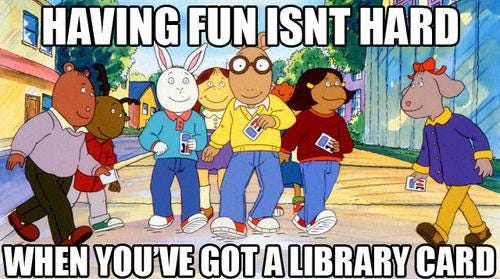
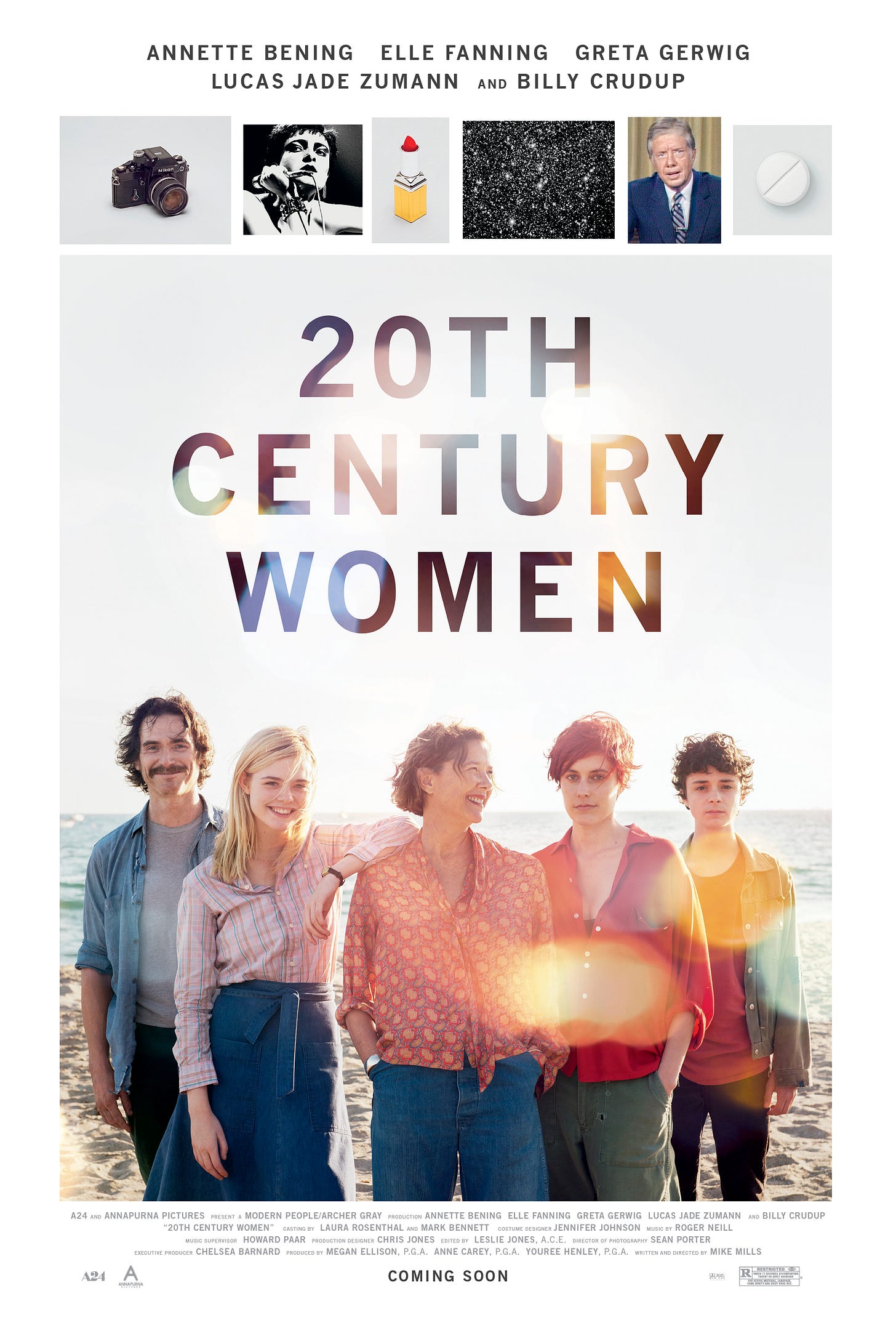

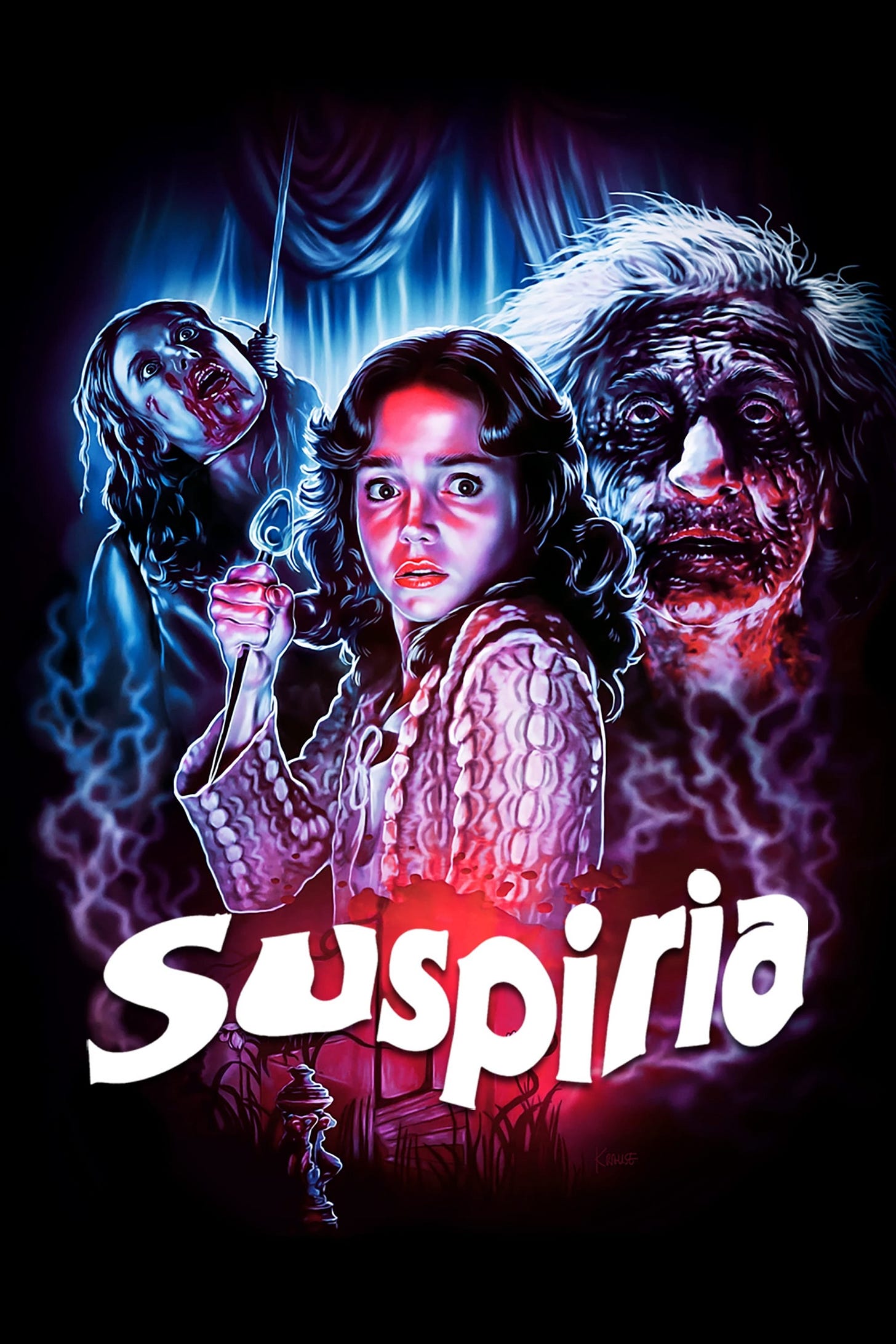
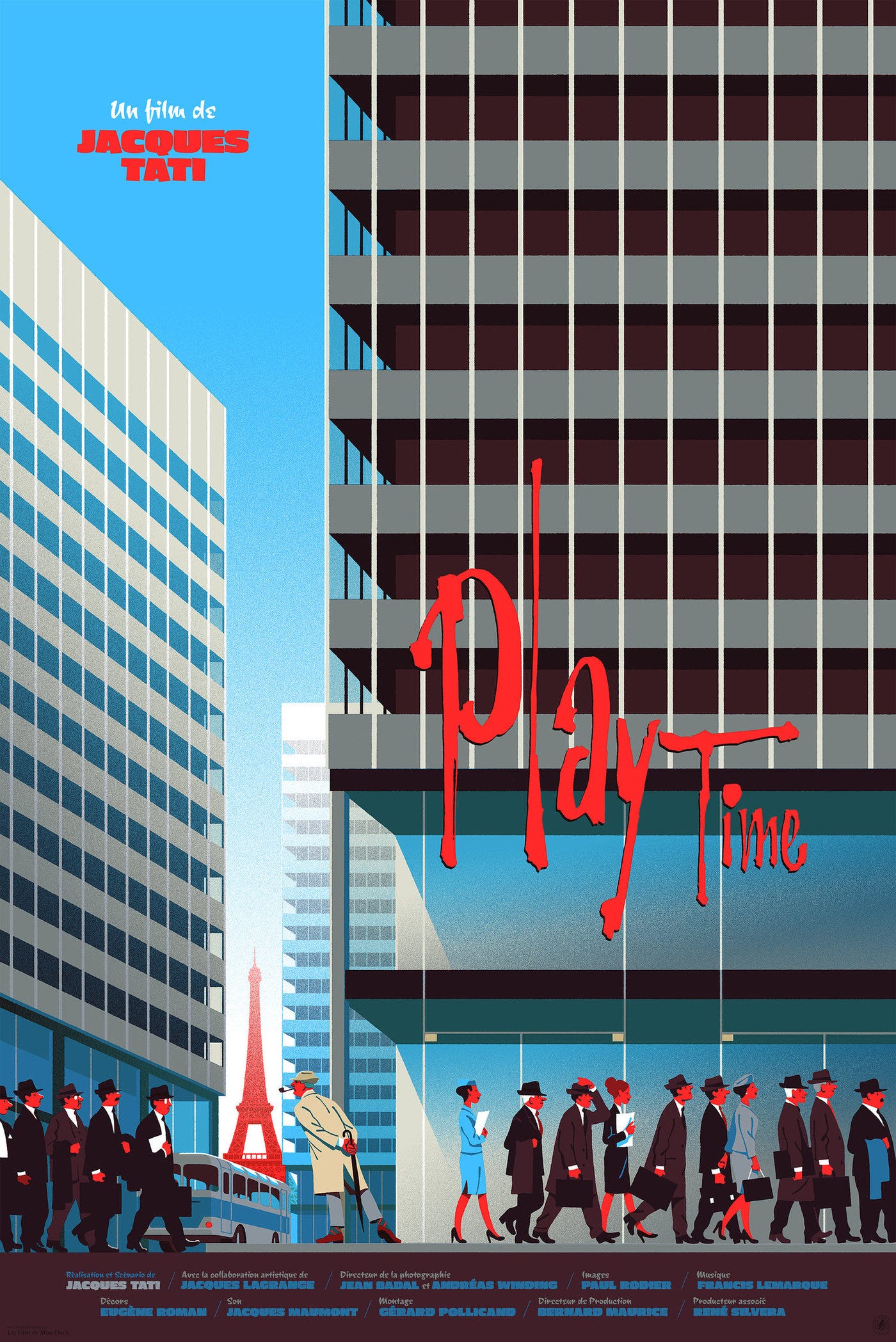
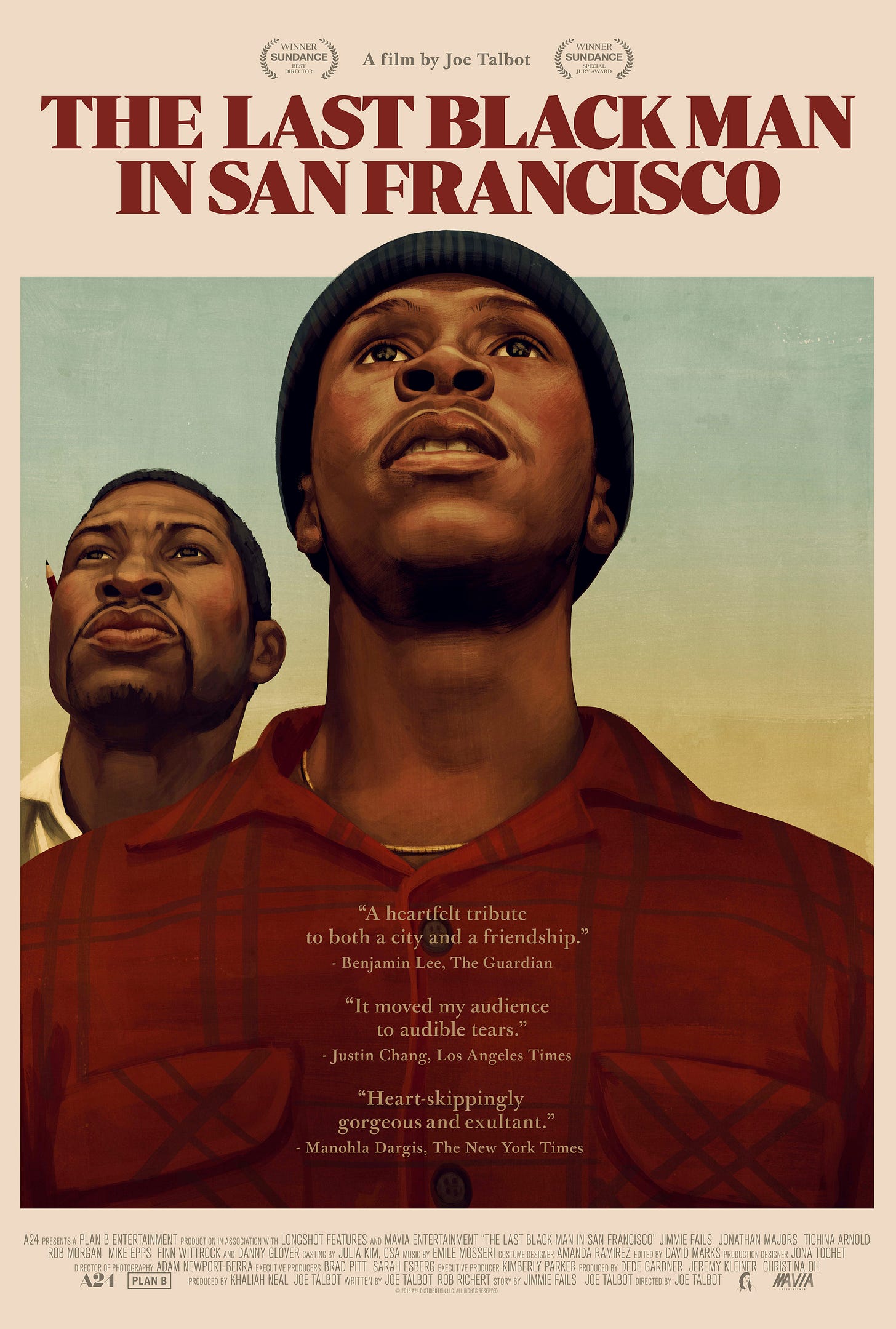
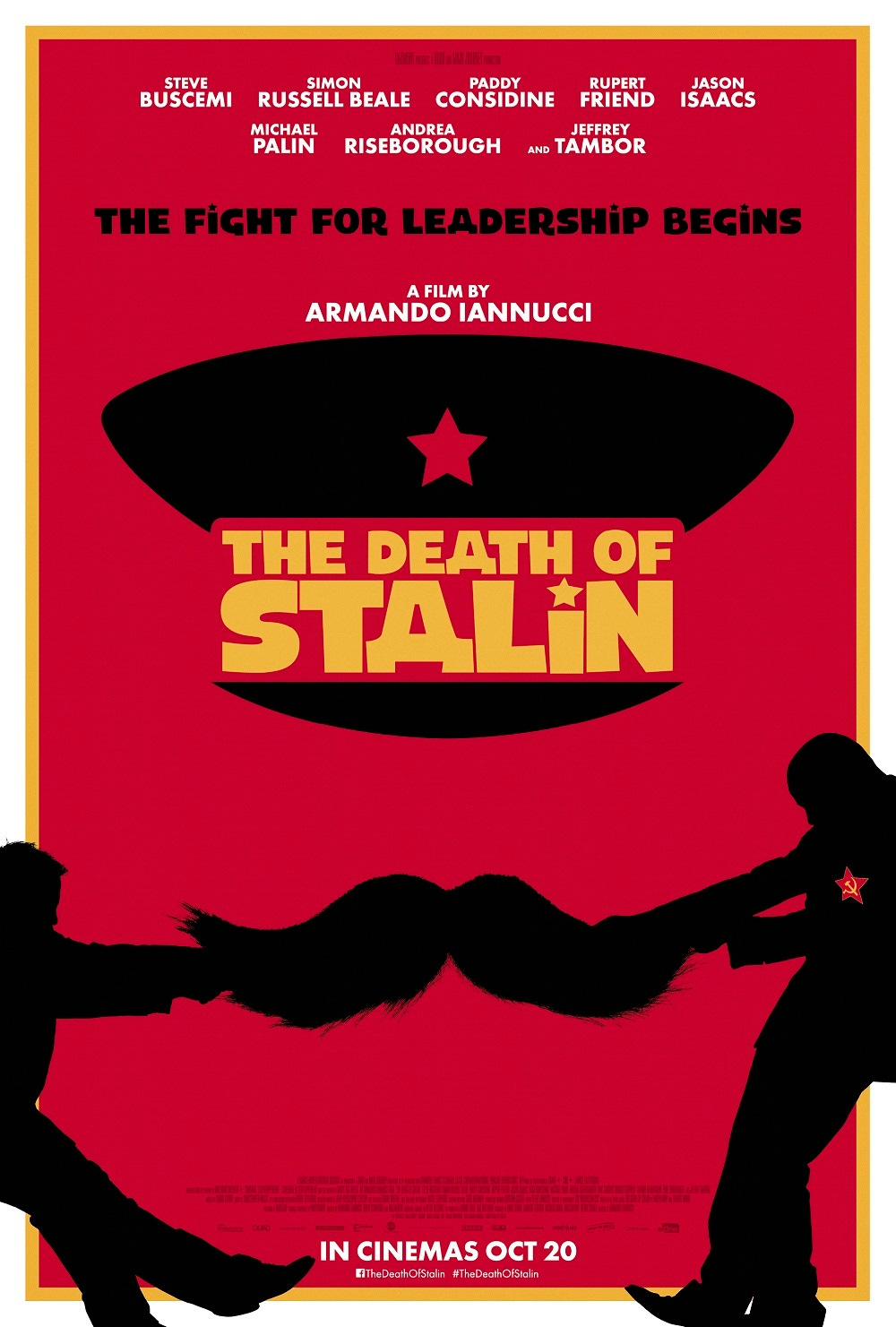

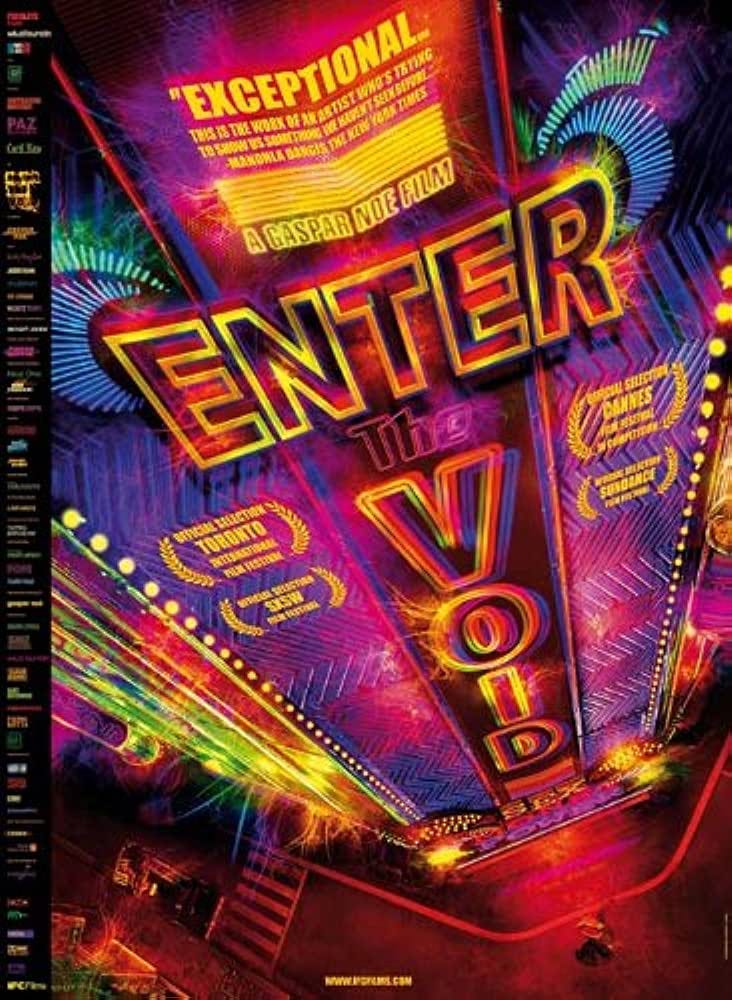
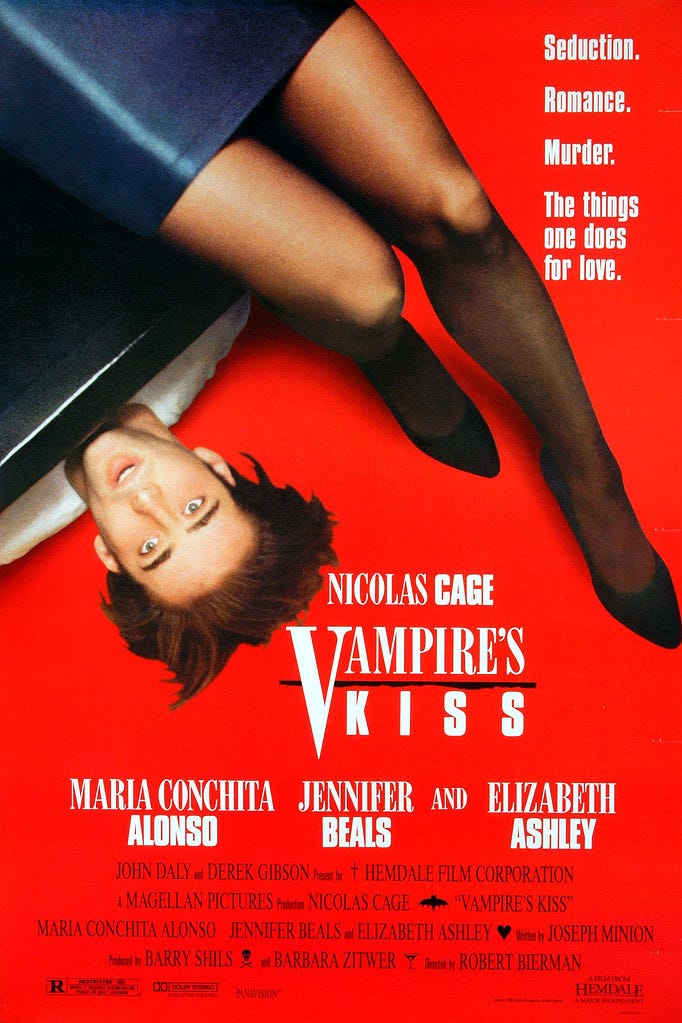
Who knew! Thanks so much for this info, Skylar! I joined immediately!
what a wild list--fun for everyone!